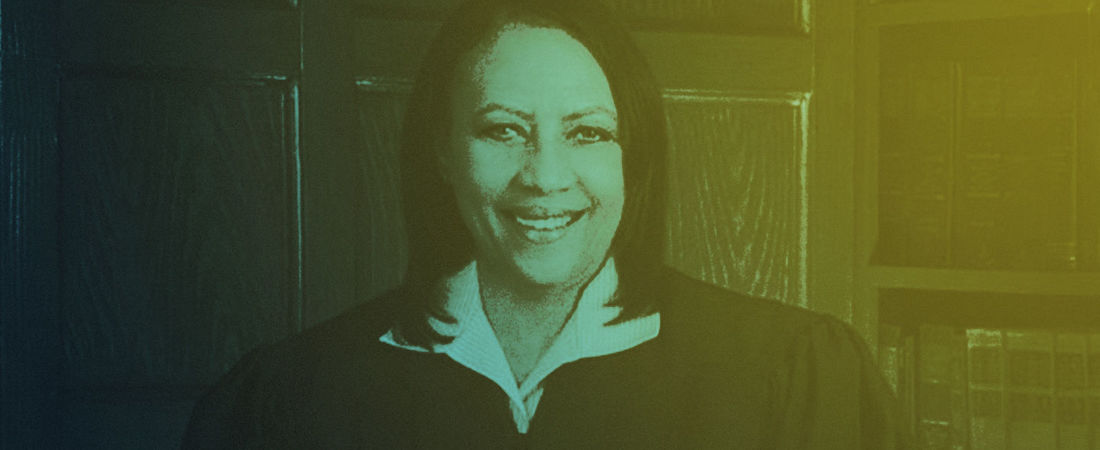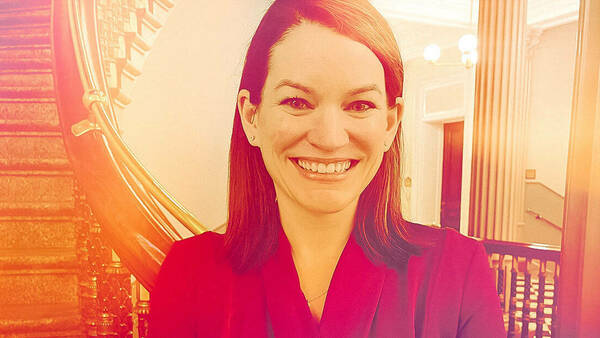One evening each month, high school students and their families pack into a Houston courthouse for a life-changing series of legal deliberations.
The night begins with a meal, after which the crowd disperses into several courtrooms where, over the next couple of hours, prosecutors and defense attorneys argue a dozen or so cases to juries while defendants await their fate.
It’s another edition of the city’s Teen Court, a program that allows young people to try cases involving their peers. Offenses range from assault and theft to fighting and curfew violations, and the participants are high school students.
Judge J. Elaine Marshall ’77, director and presiding judge of the city’s Municipal Courts Department, oversees the proceedings, assisted by colleagues who volunteer to help facilitate the evening. Everything is designed to help the engage the young people who are present. Some get to try their hands as prosecutors and defense attorneys, while others exercise their best judgement serving on juries.
And even the defendants don’t get off the hook. In addition to facing whatever sentence—often community service—the jury metes out, they must return and serve on at least one future jury. That experience leads many to get involved as volunteers not long after they’ve navigated the system as offenders.
The arrangement is deeply satisfying for Marshall, who took over the city’s ailing teen court program just five years ago years ago, growing it from 15 to approximately 100 volunteers. As a mother to a blended family of four children and a woman who’s been passionate about helping young people since she began her legal career some three decades ago, she sees Teen Court as a powerful way to make a difference.
“You would be amazed at how the kids handle each other,” Marshall says. “They’re harder on each other than I think most judges are but at the same time there’s a sense of respect among them, and once they have to sit on that jury panel and judge others, they come out of that jury room and they ask, ‘How can I join?’ And to me, that’s the most rewarding thing when you have an offender who’s charged with theft asking ‘how can I help, how can I join this?’”
As Marshall sees it, the program is about empowering young people. It leads some to think about what a legal career might look like, and to picture themselves in it. And it offers others a constructive punishment for a youthful offense and a way to plug into a community of volunteers who are leading productive lives.
After completing their initial mandatory jury rotation, a previous Teen Court defendant needs to maintain decent grades—C’s or higher—to continue as a volunteer. And those who do continue see good results: in the five years Marshall has run Houston’s Teen Court, the program has tried some 650 cases with only one repeat offender.
Marshall recalls a particularly poignant case where a defendant faced theft charges. During testimony, he admitted guilt and explained that his mother had recently died. He was staying with his sister, who already had five kids of her own. He told the jury he was trying to help, but had made a mistake.
The prosecutor opted to forgo cross-examination and instead opted for a brief closing statement.
“He said ‘Everyone makes mistakes, and people do things for different reasons, but I would like for you to have this defendant do several jury rotations because I think he needs us. He needs to feel the love that we can give him because he doesn’t have his mom anymore, but he has us. And if he hangs out with us for four months, then I think we can develop a good friendship,’” Marshall recalls. “There wasn’t a dry eye in the room.”
Moments like that stay with Marshall. So do the emails and phone calls she receives from the program’s volunteers, who receive her contact information when they graduate. One young woman, a first-generation college student who was adjusting to her first semester at an East Coast school, wrote to thank Marshall for teaching her self-confidence and public speaking skills that helped her navigate those difficult early days away from home.
Marshall has long enjoyed working with young people. As an undergraduate studying psychology at Notre Dame, she worked with disabled children in South Bend. As a young prosecutor in Texas, she took on difficult sex crimes cases involving children who were initially uncomfortable talking to investigators. And as a judge in Houston—one of the country’s most diverse communities—she delights in visiting local schools and letting young people see a role model who looks like them.
“I do a lot of career days, I do a lot of visibility,” she says. “When I go into the different schools and I bring my robe or my gavel, you’d be amazed at the looks I get, and all you hear is, “She’s black!” Now I have their attention, because now they see that they can do it, because they haven’t seen many black judges.”
For her, Teen Court is a meaningful legacy, one that has allowed her to empower future generations to continue making a difference.
“You try to get them to believe in themselves and to know that they have a lifeline,” she says. “As long as I can get them to believe and to feel like I’m their lifeline, then I know I’m doing something good, and sooner or later when I decide to step down, the world’s going to be in great hands because there’s going to be a bunch of them out there doing great things.”



